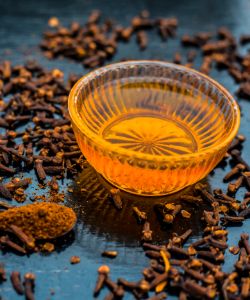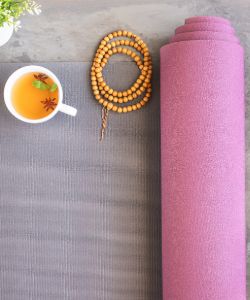The respiratory system consists of the nose, throat, mouth, diaphragm, bronchial tubes, lungs and capillaries. They constitute the parts carrying out the most vital activity of the body- respiration. Breathing in and out is automatic, something we do without fully appreciating it. However, when the flu season sets in or congestion arises, this basic activity is greatly impacted. Regular respiratory issues can massively reduce quality of life and is often an indication of something wrong in body function. Ayurveda attributes most health issues to an accumulation of ama in the body. Irregular digestion is also a key indicator of poor health in some parts of the body, and can impact respiration as well. In order to keep respiration smooth, it’s important to practice a few ayurvedic ways regularly.

- According to Ayurveda, food is medicine. Day-to-day diet affects health and a nourishing, warm diet which soothes the body is the best way to bolster immunity and prevent respiratory issues. Lentils, warming spices such as cumin, black pepper, ginger, cinnamon and cloves can all be incorporated into the food. This is particularly useful when the weather is iffy. Prevention is an important aspect of Ayurveda and is also the easiest way to keep illness at bay.
- Make warm fluids a part of your regular schedule. Soups, porridge, and even sipping warm water throughout the day makes a huge difference in health. It clears any possible infection and keeps the respiratory tract free of impurities. Drink warm water with lemon each morning. Try to replace cold drinks with soothing ayurvedic herbal teas. Make a herbal brew by boiling some tulsi leaves with cloves and mint. This refreshes the mind, body and boosts immunity.

- Stress is a major factor which can impact normal functioning of most organs. This applies to the lungs as well. Extreme anxiety and stress can cause the diaphragm to weaken and lead to poor breathing practices. This means continuous shallow breathing from the chest which can cause a number of complications. To overcome this, Ayurveda recommends regular pranayama. Pranayama is a number of breathing exercises which can regulate breathing and invigorate the respiratory system. When done regularly, it helps remove any obstructions, clear off mucus, and strengthen the organs. A healthy and happy mind leads to a healthy body. Pranayama calms the mind and regulates the body.
- Abhyangam is an important ayurvedic practice which helps treat a number of small ailments. Regular self massage or professional massage by an ayurvedic doctor can massively improve life. It helps remove ama and toxins from the body and promotes better flow in the body. Simply by spending a few minutes each day performing an oil massage, various blockages are cleared, doshas can be brought to balance and respiratory issues can be kept at bay.
Always consult an ayurvedic doctor for the best way to treat your illness.



